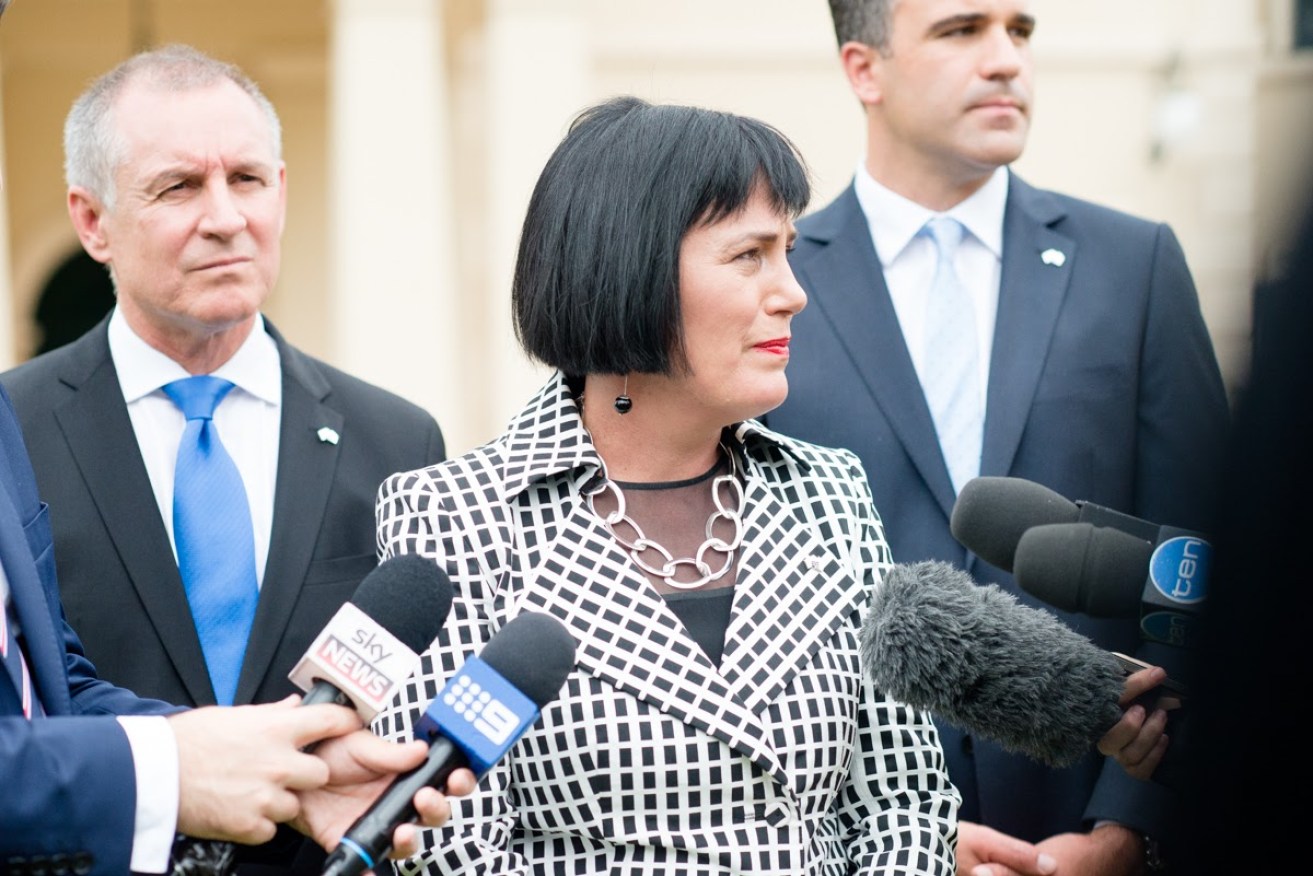Vlahos’ last act: finally, a policy on borderline personality disorder
Leesa Vlahos’ final act as Mental Health Minister was to sign off a $1.2 million plan to counter systematic failures in the treatment of South Australians suffering borderline personality disorder, InDaily can reveal.


Outgoing Mental Health Minister Leesa Vlahos - seen here at her signing-in, in early 2016 - has finally released the Government's policy on borderline personality disorder. Photo: Nat Rogers / InDaily
The Government has been unable to provide more than cursory detail on the policy, announced to InDaily this morning – 10 months after an action plan for people with borderline personality disorder (BPD) landed on Leesa Vlahos’ desk.
But it includes a program of training for hospital and community mental health staff and the establishment of a dedicated group of clinicians to deliver BPD “support” across the health system.
Regular readers will be familiar with the extreme struggle faced by South Australian carers for sufferers of BPD to get appropriate treatment for their loved ones.
Deputy coroner Jayne Basheer last week launched inquests into the 2013 death of 22-year-old Miranda Howard and the 2015 death of 18-year-old Aurora McPherson-Smith – who both suffered BPD – and the systematic barriers stopping those with the most serious form of the condition accessing the right care in SA.
Vlahos met with advocates and carers to discuss the policy this morning – and was unavailable for comment – before formally resigning her post as Mental Health Minister this afternoon.
She will remain in parliament, but has cited health issues as her reason for quitting the ministry.
News of Vlahos’ resignation came just hours after Health Minister Jack Snelling announced he was quitting on Sunday.
The BPD policy – costed at $1.2 million over two years – includes a program of training for hospital and community mental health staff and a team of “up to eight dedicated clinicians”, who will “provide specialist BPD support in the mental health system”.
It remains unclear where the clinicians will be posted or what, exactly, they will be asked to do.
Also conspicuously absent from the policy is a centre for excellence in BPD treatment, modelled on successful facilities in Victoria and New South Wales – which was a key recommendation of the action plan and which carers and advocates have been demanding for years.
However, InDaily understands the Government believes it can provide better accessibility for treatment multiple locations rather than one.
There is also no mention of BPD training for police officers and paramedics in the statement given to InDaily concerning the policy – and we have yet to hear from SA Health as to whether they will be included in the training.
Asked for more detail on the policy, an SA Health spokesperson told InDaily the funding would be used to “design and develop the borderline personality disorder service and provide staff across the health system with training in appropriately treating BPD”.
“Experts will be engaged by SA Health to scope the service and develop an integrated model of care that works seamlessly with community mental health services, and to ensure that services are delivered across South Australian where there is the greatest clinical need,” the spokesperson said.
“The new service is being developed in response to the Action Plan for People Living with Borderline Personality Disorder, which was produced by the South Australia Mental Health Commission.”
Adelaide psychiatrist Dr Martha Kent OAM, the lead author of a report warning about failures of service delivery for BPD treatment – handed to the Government in 2012 – who has given evidence to the inquests, argues the deaths of at least a dozen young South Australians in the past two years may have been avoided if appropriate treatment were accessible.
Speaking after attending the meeting with Vlahos this morning, Kent told InDaily she was pleased the Government was making a start on better care for BPD sufferers, but that more needed to be done.
“The minister reiterated to us that this is just the beginning,” said Kent.
“We’re very pleased that there’s a beginning … (but) a little disappointed that there isn’t more focus on improved treatment now.
“There’s clearly an urgent need for their treatment to improve. It’s a matter of urgency.”
Kent said the meeting had been told the group of clinicians would be providing training to hospital and mental health staff, and that a panel of people with “lived experience” of BPD would help design the rollout.
Dignity Party MLC Kelly Vincent told InDaily this afternoon: “After six years of lobbying on this issue, and far too many young lives lost to suicide, I am very pleased the State Government are finally announcing a borderline personality disorder unit for South Australia.”
“We urgently need people in the community living with BPD, and their family carers to be supported,” she said.
“This can only happen through better training of mental health professionals, improved community awareness and access to evidence-based therapies without two year waiting lists.”
Over the weekend, Opposition Leader Steven Marshall pledged $10 million for for a BPD centre for excellence – if the Liberal Party wins the state election next March.
According to a spokesperson for Vlahos, the Government’s new policy aims to achieve fewer emergency department presentations, reduced hospital admissions and less time in hospital for BPD sufferers, as well as reduced rates of substance abuse, self-harm, suicide and restraint.
The Government says the policy will also be measured against rates of recovery and relapse for BPD sufferers and to what degree it lowers “health and social costs” of the condition.




